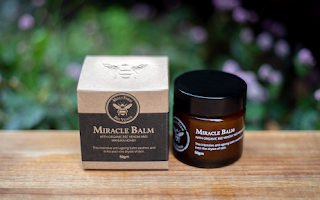
Blog

Can Apitherapy help your health?
Let’s examine what is apitherapy and check the health benefit claims.
What is Apitherapy?
Apitherapy, also called bee therapy, is a remedial treatment that utilises honeybee products for health benefits.
Apitherapy has been used in traditional medicine for centuries. The ancient Greek, Egyptian, and Chinese civilizations all used honeybee products to treat injuries and illnesses.
Resent research studies appear to confirm that apitherapy and bee products can promote health by reducing inflammation, improving circulation, and stimulating the immune system.
Which products are used in apitherapy?
The honeybee (apis mellifera) produces a number of outputs used in apitherapy
Honey
Honey is the most well-known bee product. In apitherapy honey is generally used in its raw form. That means not filtered, processed, or heat-treated .
Honey contains an array amounts of protein, minerals, vitamins, and enzymes. Honey also has antifungal and antiviral properties.
Bee venom
Bees produce venom to protect themselves and their hives from attack. They sting their attackers, injecting them with their venom.
Bee venom is a mixture of proteins, amino acids, water, and other compounds that.
Royal jelly
Royal jelly is a honey bee secretion that is used in the nutrition of larvae and adult queens. Its secretion is used to feed the bee larvae in the colony.
Royal jelly is rich in B vitamins, proteins, and antioxidants. Antioxidants reduce the levels of free radicals in the body, which experts think may be responsible for ageing.
Bee pollen
Bees collect pollen from plants. It is rich in protein, vitamins, minerals, enzymes, and amino acids. Bees pollinate plants while collecting pollen, as they transfer it from one flower to another. They also eat it, and it provides most of their dietary protein.
Propolis
Propolis is a sticky substance that bees make from plant resins. It is antiseptic and antimicrobial, and honeybees use it to keep the inside of their hives free of bacterial and fungal infections.
Beeswax
Bees make wax to construct their honeycombs and plug the honey cells when they are ready. Bees also mix the wax with propolis to cover any cracks in the hive and protect the bees from infections.
What are the benefits and uses of apitherapy
People have used apitherapy for centuries, and researchers continue to explore new ways of utilizing these products.
In 2020, an article in suggested that people with COVID-19 may benefit from the antiviral, anti-inflammatory, and antioxidant properties that these products contain
People use apitherapy to treat nerve pain, conditions such as arthritis and MS and injuries such as wounds or burns. Researchers stress that people using apitherapy need to persevere with it to achieve health benefits, as the results may take time.
Treating wounds and scars
In a 2027 published research study shows that honey has anti-inflammatory, antioxidant, antitumor, and antimicrobial properties, as well as heart-healthy qualities.
Foot ulcers
In another research study from 2010, honey was effective in treating diabetic foot ulcers, although the healing process took up to three months.
Treating immune and neurological conditions
Bee venom can be used to treat a variety of ailments, including Parkinson’s disease, MS, arthritis and nerve pain. This was evidenced in a 2021 research study
Therapist can administer bee venom can administer bee venom in a number of ways: direct sting, bee venom acupuncture, or bee venom injection.
Boosting health and overall immunity
Royal jelly, honey, bee pollen, and propolis are all rich in nutrients and vitamins, and some also contain proteins. People can benefit from these by taking them as a dietary supplement.
Improving oral hygiene
A study carried in 2020 indicated that mouthwashes and toothpaste containing honey, bee venom and/or propolis can indeed reduce dental plaque and gingivitis, or gum disease.
Side effects and potential risks
Some people are allergic to bee stings and other bee products. The reaction, in some cases, may be life threatening.
Other possible negative side effects of apitherapy include:
- muscle weakness
- headaches
- a cough
- body pain
Although the American Food and Drug Administration (FDA) has approved the use of injectable bee venom for desensitizing people who are allergic to it.
Summary
Apitherapy uses products from honeybees to promote human health.
Anyone considering using apitherapy to treat an existing condition or symptom must talk with a doctor to make sure that there are no possible interactions with their current medication.
To discover more about Apitherapy
https://apinz.org.nz


